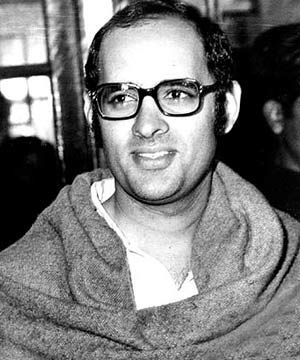Sanjay Gandhi: Life, Legacy, and Impact
Sanjay Gandhi, the son of India’s former Prime Minister Indira Gandhi, was a polarizing figure in Indian politics and history. His short yet impactful life left an indelible mark on the nation. Born into one of the most powerful families in India, his influence and role in shaping modern Indian politics are subjects of both admiration and controversy. Despite his untimely death at the age of 33, Sanjay Gandhi’s actions, policies, and legacy continue to be a subject of discussion, debate, and reflection in the political landscape of India.
Early Life and Education
Sanjay Gandhi was born on December 14, 1946, to Indira Gandhi and Feroze Gandhi, both prominent political figures in India. Growing up in a politically charged environment, he was exposed to the inner workings of Indian politics from a very young age. His early life was influenced by the political atmosphere around him, and he developed an early interest in public life.
Sanjay attended prestigious schools in India and later went abroad to study at the prestigious Eton College in the United Kingdom. His time abroad, however, was cut short when he returned to India in the early 1960s. His education, coupled with his exposure to political events and family influence, played a significant role in shaping his views on governance and reform.
Career and Political Involvement
Sanjay Gandhi’s political career took off in the 1970s when he became closely involved with the Indian National Congress, the political party of his mother, Indira Gandhi. Though he was not officially part of the government, he wielded significant influence during the period of his active political involvement. His power grew immensely during the Emergency (1975-77), a period declared by Indira Gandhi that curtailed political freedoms and civil liberties in India.
Sanjay’s role during the Emergency is a topic of much debate and controversy. While some argue that he used his power to push forward significant reforms, others criticize him for his authoritarian approach and misuse of power. During this time, he took on ambitious projects such as slum clearance, family planning programs, and the beautification of Delhi. His efforts to impose a sterilization program in the country, which was widely criticized for being forceful and insensitive, became a defining aspect of his legacy.
In addition to his work in family planning, Sanjay Gandhi focused on environmental issues and industrial development. He pushed for modernization projects and was involved in industrial ventures. His leadership in the Maruti Udyog project, which aimed to build a domestically produced car, marked his involvement in India’s industrial landscape, though it was met with mixed reactions.
Controversial Legacy
Sanjay Gandhi’s legacy remains one of the most controversial in Indian history. On one hand, he is remembered for his vision of industrial development, modernization, and social reform. On the other hand, his methods, especially during the Emergency, left a negative impact on India’s political landscape. The forced sterilizations, mass incarcerations, and the crackdown on political opponents during the Emergency period were seen by many as authoritarian and against the democratic principles of India.
Despite the controversial aspects of his life, Sanjay Gandhi was undeniably an influential figure in shaping the direction of Indian politics during the 1970s. His ideas on industrialization, family planning, and environmental reforms contributed to the shaping of policies in the years that followed.
Personal Life and Death
Sanjay Gandhi’s personal life was also closely linked with his political career. He married Maneka Gandhi in 1974, who later became a prominent politician in her own right. Their relationship, however, became strained, and they eventually separated in the late 1970s.
Tragically, Sanjay Gandhi’s life was cut short in a plane crash on June 23, 1980, at the age of 33. He was piloting his own aircraft when it crashed in the outskirts of Delhi, marking the untimely end of his career and leaving the nation in shock. His death had a significant impact on the Indian political scene, and it led to changes within the Congress party as his mother, Indira Gandhi, found herself dealing with the sudden loss of her son and political confidante.
Significance and Impact on Society
Despite the controversies surrounding his political career, Sanjay Gandhi’s influence on Indian society and politics cannot be ignored. His actions during the Emergency, though widely criticized, were indicative of his desire for rapid social and economic change. The Maruti Udyog project, his efforts to push for family planning programs, and his industrial ventures are aspects of his legacy that contributed to India’s modernizing efforts, even though the methods used were often harsh and controversial.
Sanjay Gandhi also played a significant role in shaping the future of the Indian National Congress, particularly in how the party functioned during the period of emergency rule. His efforts to centralize power within the party and his assertive approach left an impact on the political strategies employed by future generations of Indian politicians.
FAQs
Q1: What was Sanjay Gandhi’s role during the Emergency in India? Sanjay Gandhi was a central figure during the Emergency period (1975-77), when his influence grew significantly. He was involved in overseeing controversial policies such as forced sterilization and forced slum clearance. His leadership during this time remains one of the most debated aspects of his legacy.
Q2: How did Sanjay Gandhi contribute to industrial development in India? Sanjay Gandhi was involved in the Maruti Udyog project, which aimed to make India self-reliant in the car industry. His push for industrialization during his time in politics contributed to the development of India’s manufacturing capabilities.
Q3: What is the legacy of Sanjay Gandhi? Sanjay Gandhi’s legacy is multifaceted, with some viewing him as a visionary who sought to modernize India, while others criticize his authoritarian style and controversial policies during the Emergency. Despite the controversy, his influence on Indian politics remains significant.
Conclusion
Sanjay Gandhi’s life was marked by ambition, controversy, and a desire for rapid change. His contributions to India’s industrial development and social reform left a lasting impact, but his methods and his actions during the Emergency period continue to be subjects of intense debate. While his life was tragically cut short, his legacy lives on, reminding us of the complexities of leadership and the far-reaching consequences of political decisions.










